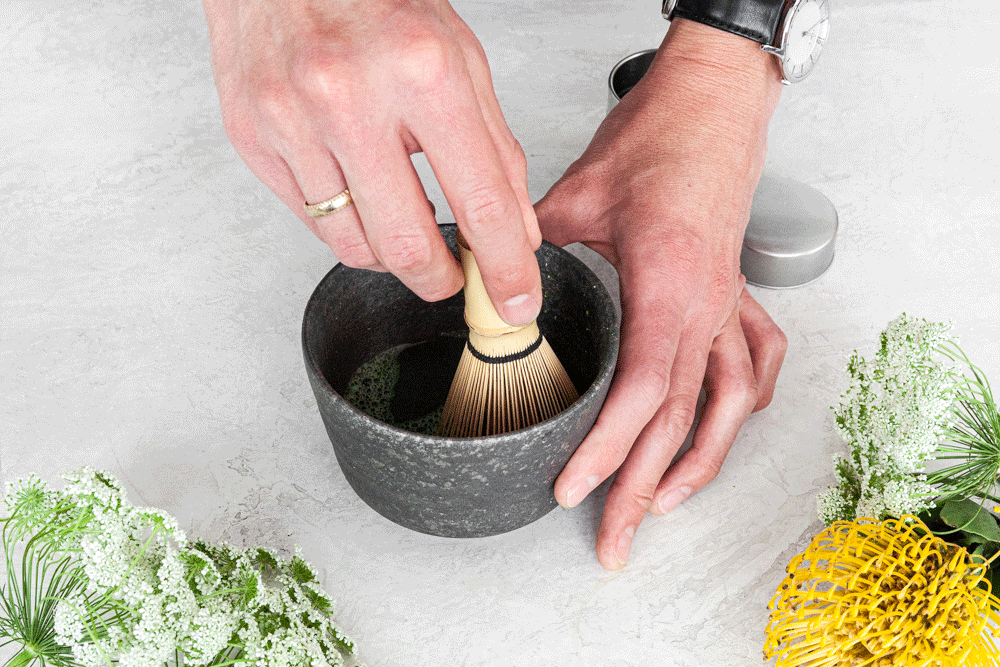Matcha vs. Coffee: The Science Inside Your Cup
In cafes around the world, coffee dominates the menu. From drip to espresso to sweet cream cold brew – there’s no shortage of ways to secure a daily dose of caffeine. But in recent years, despite ample competition, another contender has managed to make its way onto the board and hold its own against even the most beloved coffeehouse staples. To understand matcha’s meteoric rise, we’ll take a look at the science that goes into every cup – and why more people each year are making the switch from bean to green.
Not all energy comes equally. While both coffee and matcha contain the same stimulant – caffeine – they differ quite a bit in terms of release and duration. Coffee packs a whopping 150mg per cup, but its quick dispersal often leads to a surge in glucose, adrenaline, and an overall feeling of unease. In some cases, this buzz ends with an abrupt crash, leaving you beat well before lunchtime.
On the other hand, matcha provides a more steady release of energy with less than half the caffeine per cup. This is in large part thanks to the many amino acids, polyphenols, and other antioxidants naturally present in tencha, or green tea specifically shade-grown for matcha production. One such amino acid, L-Theanine, is a superpower compound that binds with the caffeine molecule, to prevent any risk of jitters or a sudden crash. It’s also a great remedy for restlessness, as it enhances key neurotransmitters (like dopamine and serotonin) to ensure your mood – and sleep – is stable.
Better still, matcha’s main antioxidant component, catechin, imparts an anti-inflammatory effect while lending a boost to the brain’s overall cognitive function. For those that depend on their morning cup to get them through the work day, that clean, sustained sense of focus is reason enough to lay off the coffee.
All of that said, matcha still has a long way to go before it can truly compete with the reigning champ. In the United States, nearly three quarters of Americans drink coffee every day. Of them, two thirds make it at home on a daily basis. It’s a ritual not so easily replaced – no matter the health benefits that might be waiting on the other side.
Those curious, however, can rest assured: delicious matcha at home couldn’t be easier! With a bowl, a whisk, and some quality matcha, you’ll be sipping on ceremonial-grade goodness in just under a minute. Head to our previous Directory post to try for yourself, and find all the tools for success in the Morihata Matcha collection.








